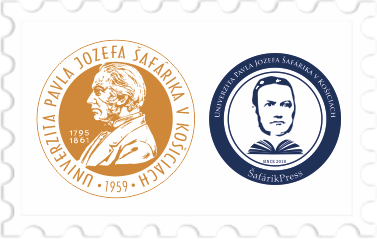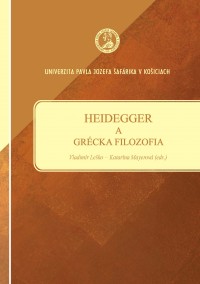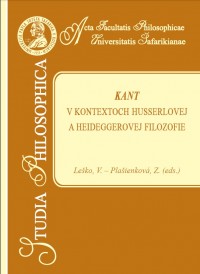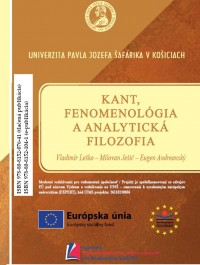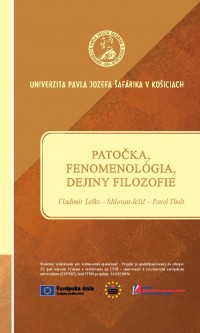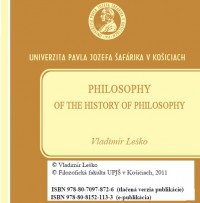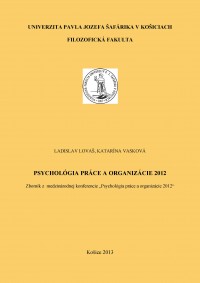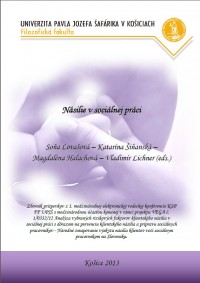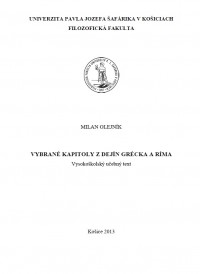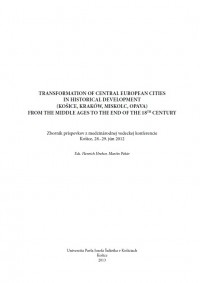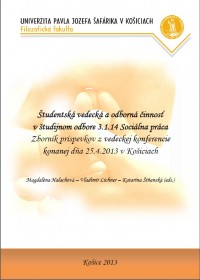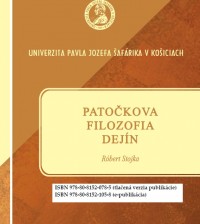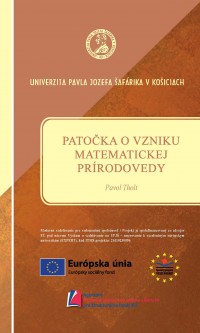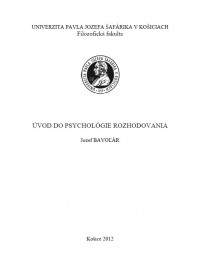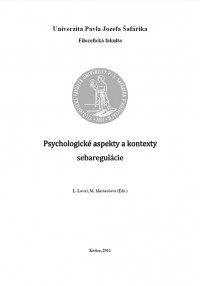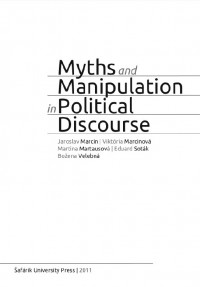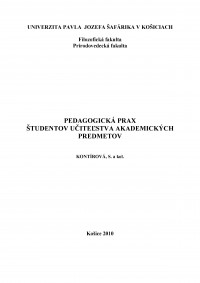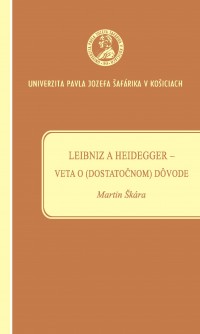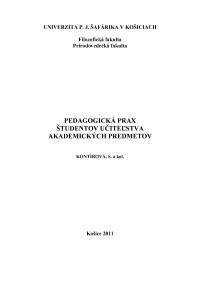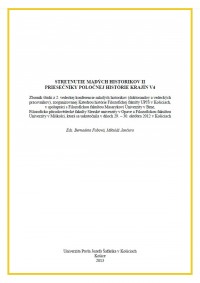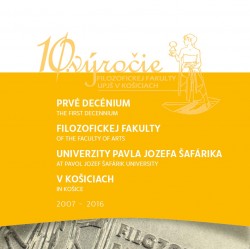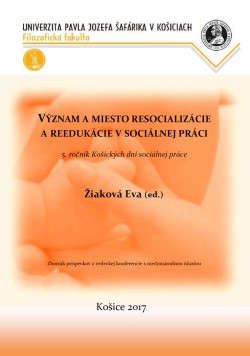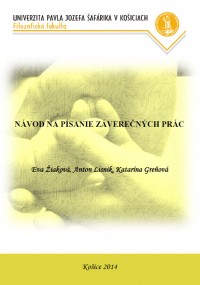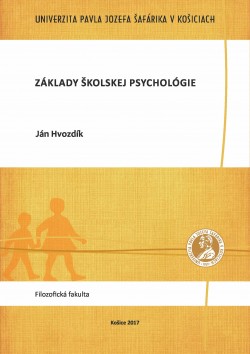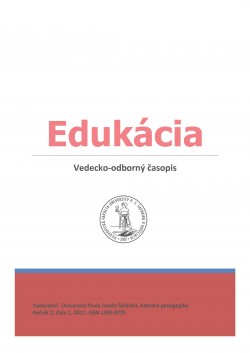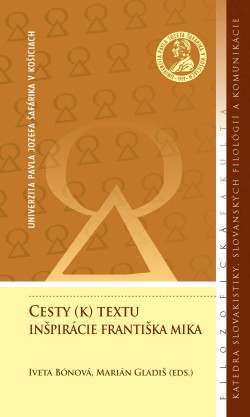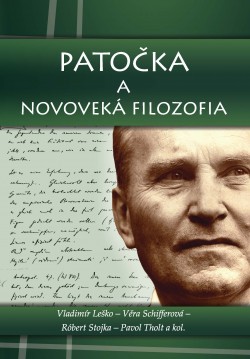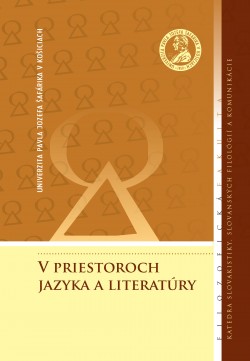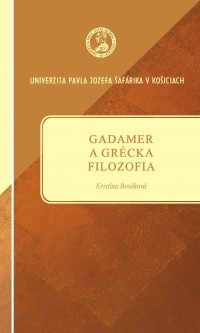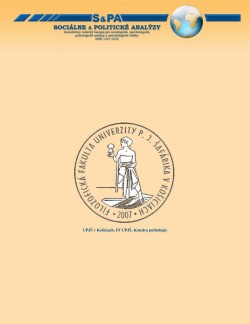No products
Product successfully added to your shopping cart
There are 0 items in your cart. There is 1 item in your cart.
Moc v dejinách ľudskej spoločnosti. Stretnutie mladých historikov XIII.
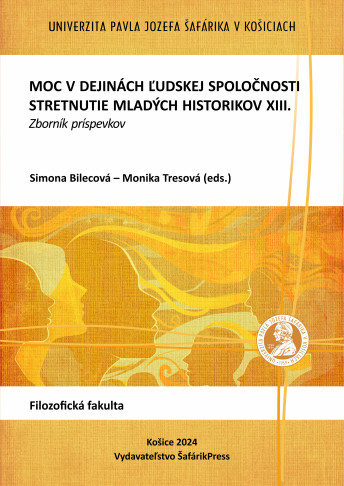
Simona Bilecová - Monika Tresová (eds.)
Online only
978-80-574-0303-6
E - book for free download
Kľúčové slová:
Data sheet
| Compilers: | Simona Bilecová - Monika Tresová |
| Year of publication: | 2024 |
| Available from: | 15.04.2024 |
| Edition: | 1st edition |
| Document type: | Proceedings |
| Publication language: | Slovak |
| Number of pages: | 113 |
| Faculty: | Faculty of Arts |
| Licencia: | Creative Commons BY NC ND (Uveďte autora - Nepoužívajte komerčne - Nespracovávajte) |
More info
Proceedings of the 13th Scientific Conference of Young Historians, organized by the Department of History of the Faculty of Arts of the University of Pavol Jozef Šafárik in Košice in cooperation with the State Archives in Košice and the Slovak Historical Society at the Slovak Academy of Sciences on 24 October 2023
The central theme of the conference proceedings of the scientific conference of doctoral students is the issue of power as an instance that is an inherent part of human existence and has been present in society de facto since its beginning. Since power and the desire for power are present even today, perhaps more than at any other time in the history of human society, the proceedings provide adequate answers to the questions: where is power born and from what does it originate? How do social science disciplines view those social groups that do not hold power? The publication consists of eight contributions by authors working at Slovak and Czech universities. The volume opens with a paper by Dávid Nykodým on power in the city of silver in the era of Jiří of Poděbrady. The administration of estates in the hands of widows in the 17th century (on the example of Judith Balassa) was discussed by Sabina Danková. The issue of the role of the university grand master in the monopolization of education during the First Empire 1808-1815 in France was examined by Michael Dudzik. The period between the two world wars on the territory of Czechoslovakia was mapped in their contributions by two authors: Simona Bilecová, who characterized the emergence and creation of the political elite on the example of the Rožňava region, and Dominik Šípoš, who evaluated the power of the party as an ideological problem of the Czechoslovak National Democracy. This line was continued by Patrik Beňuš, who analysed in detail the crisis in railway transport in the southern territory of Slovakia after 1938. Monika Tresová dealt with the activities of Catholic associations in Košice and their disappearance under the pressure of the communist power after 1948. Miriama Balvirčáková dealt with the power and its legitimacy, judicial rehabilitation of the victims of the communist regime in Eastern Slovakia in 1968-1971.
